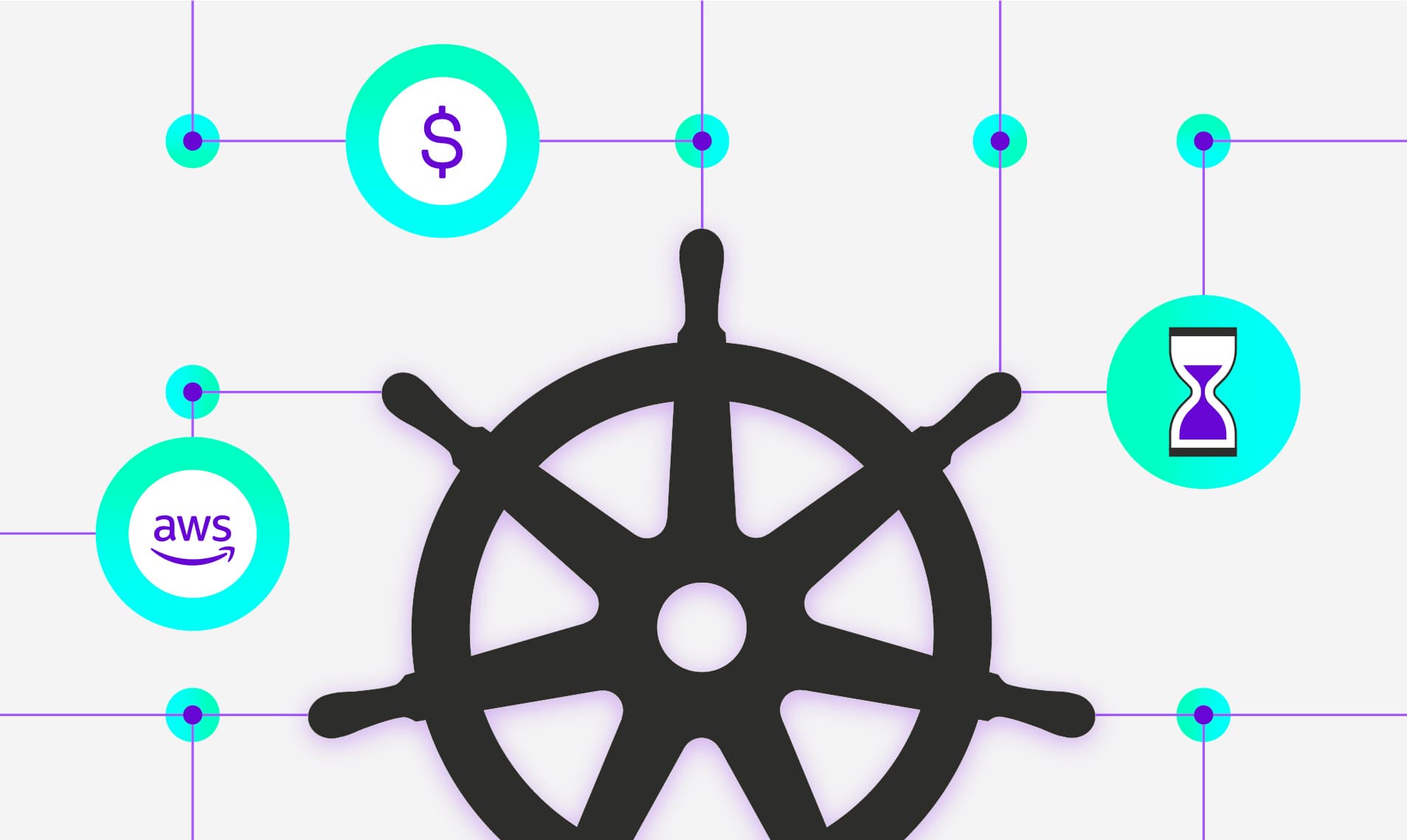Amazon EKS Extended Support Explained
EKS extended support provides a safety net for teams unable or who don’t prioritize upgrading Kubernetes versions on time, but it comes at a steep price.

Amazon charges an additional fee on top of regular usage costs for using older versions of certain services where community support has ended and extended support is required from AWS, such as with Amazon EKS.
What is Amazon EKS Extended Support?
Standard support for Amazon EKS means your Kubernetes version is still being supported by the Kubernetes community through regular updates and security fixes. The Amazon standard support period lasts for 14 months after the Kubernetes version’s initial release in EKS. After that period, the version enters extended support.
Under extended support, AWS is the one providing things like security patches for the Kubernetes control plane, updates to EKS components like the Amazon VPC CNI plugin, kube-proxy, and CoreDNS add-ons, maintenance for Amazon EKS-optimized AMIs for Amazon Linux, Bottlerocket, and Windows, and support for EKS Fargate nodes.
Because of the additional engineering effort by AWS to support the older versions, there is an additional, relatively expensive fee for extended support nodes.
Extended support lasts only 12 months, then AWS will automatically upgrade your cluster to a supported version. Since you're required to upgrade eventually, it's generally best to do it before the version leaves standard support.
You can avoid extended support charges by upgrading your cluster to a supported version. Or, you can opt out by setting your cluster upgrade policy to ‘STANDARD’, and it will be automatically upgraded.
EKS Extended Support Costs
Charges for EKS apply for the underlying EC2 instance and a version support fee. That fee is $0.10 per cluster per hour for standard support and $0.60 per cluster per hour for extended support. So if you don’t upgrade, you’re paying 6 times more for the same cluster.
The table below shows Kubernetes versions that are either currently in extended support or will be soon:
Amazon EKS extended support dates
If you’re currently on versions 1.25-1.29 you are paying for extended support and may not realize it. To check your versions using the CLI you can use the following command: aws eks describe-cluster-versions. You can also tell by looking at your bill, the CUR line item for standard support is AmazonEKS-Hours:perCluster and the CUR line item for extended support is AmazonEKS-Hours:extendedSupport.
Conclusion
EKS extended support provides a safety net for teams unable or who don’t prioritize upgrading Kubernetes versions on time, but it comes at a steep price. If possible, plan your upgrades within the 14-month standard support window to avoid unnecessary costs and forced upgrades.
Sign up for a free trial.
Get started with tracking your cloud costs.



